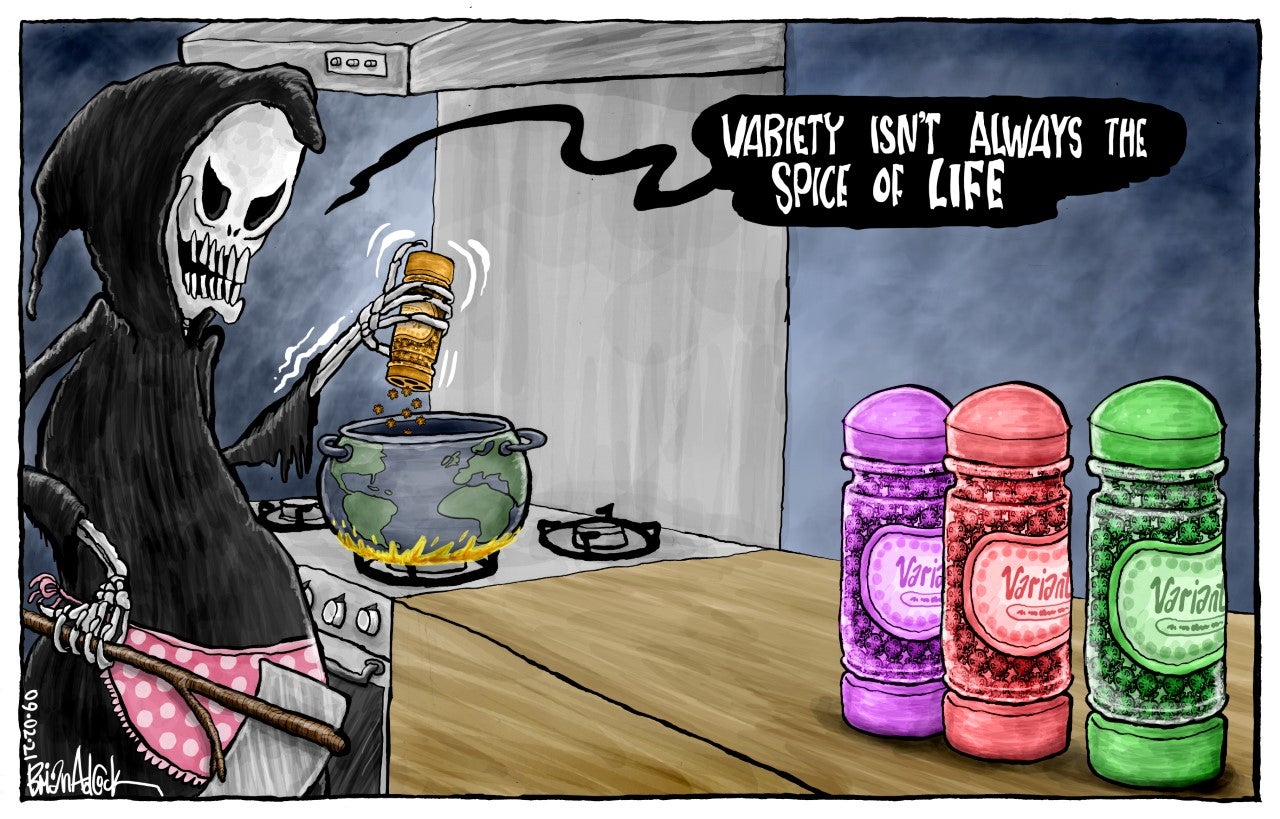Going back to ‘normal’ will be a process, not an event – we must learn to live with Covid
Editorial: The reality is that only one communicable disease has ever been eradicated from the surface of the Earth, that being smallpox, and it took almost two centuries

The name sounds like something out of an apocalyptic science fiction film, but the menace of the South African variant – or B1351, to give it its code name – is very real.
It does, like other variants, seem more contagious than the original coronavirus, and the AstraZeneca vaccine may well be less effective against it. But Jonathan Van-Tam stated on Monday evening that, despite widespread reports, there was no evidence that the South Africa variant is more transmissible.
As far as the experts seem able to determine, the AstraZeneca vaccine does still prevent the most serious cases escalating to hospitalisation or death. But so-called mild and moderate Covid may become more likely than in the past if people come into contact with this particular variant of the virus. Whether other vaccines are similarly losing a degree of their effectiveness is not clear, but it is at least a possibility.
It is not good news. The terms “mild” and “moderate”, when applied to Covid, can, in reality, be euphemistic; for older patients especially, it will be the worst bout of illness they will suffer across their lives, even if they avoid death.
It is becoming increasingly clear that varying degrees of debilitation and disability can last for months, if not years. It is too early to gain a full picture of the lingering effects of what we now call long Covid, but they are far from trivial. It is much more than a bad case of the flu.
With new treatments, such as dexamethasone and other repurposed drugs, and the growing experience of medical teams, Covid has become less fatal, and the AstraZeneca vaccine will make it even less so. But as a severe and very unwelcome illness with long-term consequences, Covid will be around for longer and for more people than was at first hoped. Going back to “normal” will be a process, not an event.
Given that the virus was only just recognised and beginning to be understood barely a year ago, the arrival of so many vaccines so quickly is a cause for encouragement. The race against the virus may go on for a long time, and may never be definitively “won”, but there is no reason why the universities and big pharma will not again be able to gain the advantage, and edge ahead once more. As different forms of vaccine are developed, to deal with different variants, the case for mixing them to maximise protection in individuals seems to be getting stronger, and the medical trials to test the safety of this cannot come quickly enough.
The reality is that only one communicable disease has ever been eradicated from the surface of the Earth, that being smallpox, and it took almost two centuries. Even today, after considerable expense and research, and even with remarkable leaps forward in life-saving treatments, there is no “cure” or vaccine for HIV/Aids. TB and polio are still with humanity. Eradication of coronavirus is unlikely.
The slow application of vaccines in poorer countries, in populous places such as South Africa and Brazil, may well mean that there will be “stores” of coronavirus replicating and mutating in humans at a rapid rate, and so much so that science cannot entirely keep up with developments, even though the current vaccines are easy to tweak. In an open world where borders cannot be hermetically sealed, sooner or later people will arrive from riskier areas. Even with quarantine and tracing, the virus will escape into the community.
It may well be that people will have to learn to live with the virus. Learning to manage Covid means periodic lockdowns, restrictions on travel and work, social distancing, mask-wearing and all the usual precautions, particularly in winter. Annual jabs will probably be needed. To suppress Covid to manageable proportions as it becomes more infectious, the rich west – governments, pharmaceutical companies, tech giants, academics – will have to to get serious about quickly mass vaccinating lower-income countries, and making test-and-trace facilities and technology truly effective across the planet.
Covid doesn’t and will never stop at Dover. A pandemic demands a global response. As the saying goes, no one is safe until everyone is safe. The route to opening up a school in Florida or a football stadium in Bavaria lies through the poorer areas of Manaus and Johannesburg.
Join our commenting forum
Join thought-provoking conversations, follow other Independent readers and see their replies
Comments



Bookmark popover
Removed from bookmarks